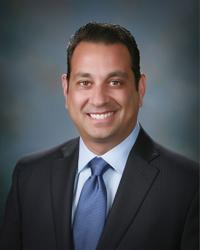PHOENIX — Just days before early ballots go out, foes of a higher minimum wage finally have some money to spend on the campaign.
But it’s just $20,000. And Garrick Taylor, spokesman for the Arizona Chamber of Commerce and Industry conceded that the money, which made it into the anti-Prop. 206 account Friday, may be far too little to defeat what appears to be a popular proposal.
“Hopefully, you’ll be seeing more in the coming weeks,” Taylor said, with more resources available to put out the chamber’s message that increasing the minimum wage in steps to $12-an-hour by 2020 will hurt business and cause some firms to lay off workers.
Taylor said, however, he recognizes the hurdle in trying to kill the initiative.
A recent poll showed Proposition 206 with close to a 2-1 lead among those questioned. That’s the same margin that approved a 2006 measure that first created a state minimum wage higher than what the federal government requires.
People are also reading…
And Taylor acknowledged that similar measures have gained approval in other cities and states.
“This is not an insubstantial endeavor,” he said.
What is making it even harder is that the business community as a whole, for whatever reason, is not willing to plunk down the kind of cash it would take to even have a chance of killing the measure.
That has annoyed Steve Chucri, president of the Arizona Restaurant Association.
His organization took the lead in trying to keep the measure from ever getting to voters in the first place, filing suit challenging the qualifications of paid circulators.
A judge concluded that many of the signatures were probably invalid but ruled that the lawsuit was not filed on time. The result was that his organization had to absorb not only its own legal fees but also pay for the lawyers hired by the other side.
That’s a figure he would not disclose. But Arizonans for Fair Wages and Healthy Families reported its own legal fees at $41,500.
Chucri acknowledged that a $12 minimum wage, up from the current $8.05 an hour, would hit his industry particularly hard. But he told Capitol Media Services he expected other interests to step up.
“This isn’t only a restaurant issue,” he said.
“This is a business issue,” Chucri continued. “And if others aren’t going to stand up, we can’t win a ‘no’ campaign in a vacuum.”
More to the point, he said restaurant owners are unwilling to finance the fight on their own. And if that means the measure is approved, his members will deal with it.
“We’re going to raise prices to offset this cost,” he said.
“We’re going to eliminate jobs,” Chucri said. “And we’ll turn to automation.”
Lack of money is not a problem for the other side.
Campaign-finance reports show proponents gathered more than $1.65 million by the middle of last month. Even with expenditures to put the measure on the ballot and fight a legal challenge, that still left them with more than $105,000.
Since that filing deadline, though, records reviewed by Capitol Media Services show the campaign has picked up at least another $330,000. That includes a $250,000 from the National Education Association and $60,000 from the Sixteen Thirty Fund, a nonprofit that, according to its filings with the Internal Revenue Service “promotes social welfare through public education and advocacy regarding progressive policies.”
The largest donor since the campaign began, however, remains Living United for Change in Arizona, which put up close to $1 million.
Given that funding disparity and the poll numbers, that raises the question of whether there is anything the business community can do at this late to defeat the measure.
“We acknowledge that time is short,” Taylor said. “But the only poll that counts is the one taken ... in November.”
That, however, ignores the fact that early ballots are being sent out Wednesday, meaning voters can begin immediately making their choices and dropping them in the mail.
On Twitter: @azcapmedia












